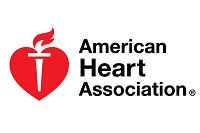Heart Health Recommendations For Those With CHD

Since you have congenital heart disease (CHD), it's very important for you to follow the "healthy-heart recommendations" for diet and activity. No matter what type of heart disease you have, a better overall level of physical fitness will help you do your normal daily activities more easily. Also, you have the same risk of developing other heart diseases, such as coronary artery disease or high blood pressure, as other people your age.
Follow these guidelines to keep your heart healthy:
- Eat a balanced diet.
- Maintain a reasonable body weight.
- Stay at least moderately physically active, within any limits your cardiologist gives you.
- Check your cholesterol level regularly, especially if your family has a history of heart disease.
- Avoid smoking tobacco, using intravenous drugs, or taking street drugs. These behaviors are even riskier for you than for people without congenital heart disease.
- Get regular medical care from your primary care physician. Even though you have a cardiologist, you still need a primary care doctor who is in charge of all your medical care.
- Take care of your dental health. Regular dental care minimizes the chance of infections that could affect your heart. Your cardiologist will tell you if you need to take antibiotics, based on the type of heart disease that you have. See the section on Endocarditis for more information.
Following the recommendations of your cardiologist is important for keeping your heart healthy. These recommendations include:
- Keep your follow-up appointments with your cardiologist.
- Take your medicines as prescribed.
- Make sure you have the necessary tests done when your doctor orders them.
- Follow any physical activity recommendations and restrictions.
- Talk with your cardiologist if you feel that a treatment or follow-up is making your feel worse or is unnecessary. Don't make any changes to your plan without consulting your doctor.
- Check on possible side effects of over-the-counter medications, vitamins, herbal preparations or prescription medications before taking them. Discuss any potential cardiac side effects or drug interactions with your primary care physician, cardiologist or pharmacist.
- Discuss your heart disease with your doctors before having a surgical procedure. Sometimes the surgery or anesthesia can affect your heart.
- One of the most important things to do to maintain your health is to learn as much about your heart disease as you can. This includes knowing the kind of heart defect you have, what surgeries were done and how your heart is working. Always carry a list of your medicines, including how much, how often and why you take them. Don't rely on your parents, children, family members, primary care doctor or anyone else to do this for you!
Story Credit: http://www.heart.org/HEARTORG/Conditions/CongenitalHeartDefects/CareTreatmentforCongenitalHeartDefects/Heart-Health-Recommendations-For-Those-With-CHD_UCM_307739_Article.jsp#.WcJ5S4WcG18


